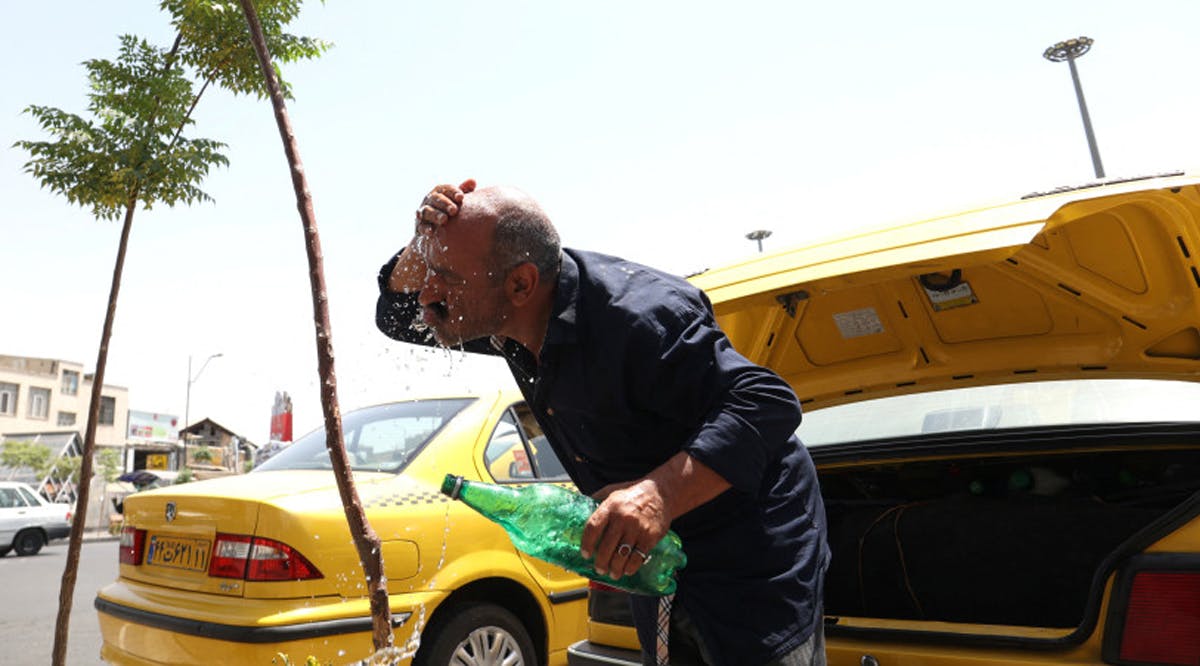
Iran Could Burn Up in 30 Years, and Not from a Nuclear Meltdown
The Iranian people are burning up, and not because of a nuclear meltdown. The culprit? Climate change – and the situation is unlikely to change anytime soon.
This summer, a significant portion of the global population has been exposed to extreme temperatures and while many might assume that California’s Death Valley is the hottest location on Earth, the area with the highest land surface temperature resides in Iran’s uninhabitable Lut Desert, said Dr. Amir Givati of Tel Aviv University’s Department of Environmental Studies. This remote desert region registered a peak of 70.5 degrees Celsius in 2005.
Sahar Tajbakhsh, the head of Iran's Meteorological Organization, said that the country's temperatures are escalating twice as fast as the global average.
A study published by Lancet Planet Health in April evaluated the effect of global warming on the Middle East and North African (MENA) region, finding that "Iran has more than 1,700 heat-related deaths per year and is the most vulnerable MENA country per capita, with an estimated 11 deaths per 100,000 people per year."
The number is not only five times the average of the Middle East (2.1 per 100,000), but the researchers estimated that it could reach 423 deaths per 100,000 by 2060.
Iran remains the top emitter of greenhouse gases in the Middle East and given its ongoing economic crisis and its lack of commitment to investing in renewable energy, the likelihood of the situation improving remains minimal.
By 2050, it will become very difficult to live in Iran, wrote Banafsheh Keynoush in a report for the Middle East Institute (MEI) in January. "Some 70% of the population — or nearly 50 million Iranians — might be ultimately forced to leave the country to survive." (JPost / VFI News)
“God, we pray that no person on earth will experience a heat-related death. We hope that all countries will take austere measures to protect their citizens during summertime and will be given all the means to rest adequately during the harsh weather conditions.”